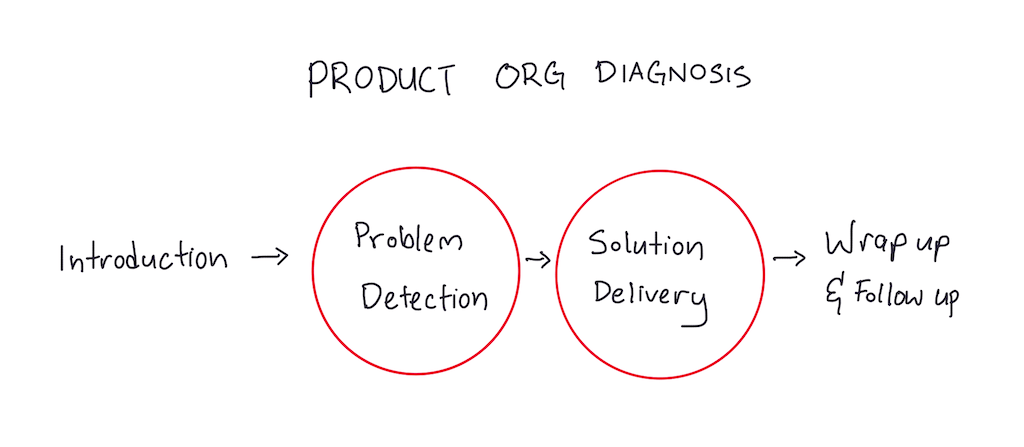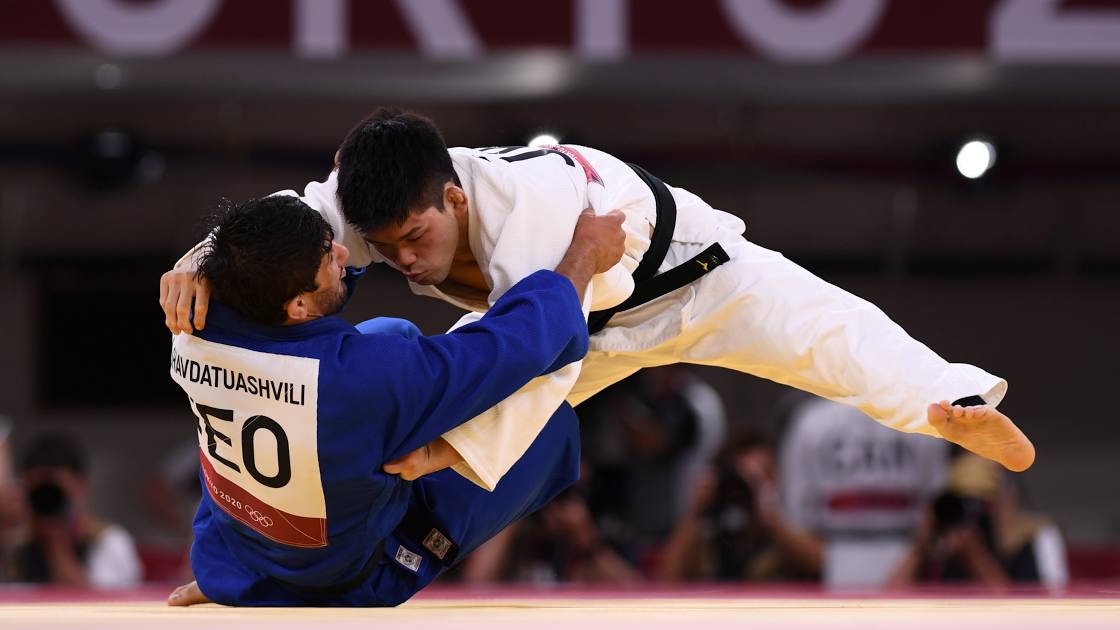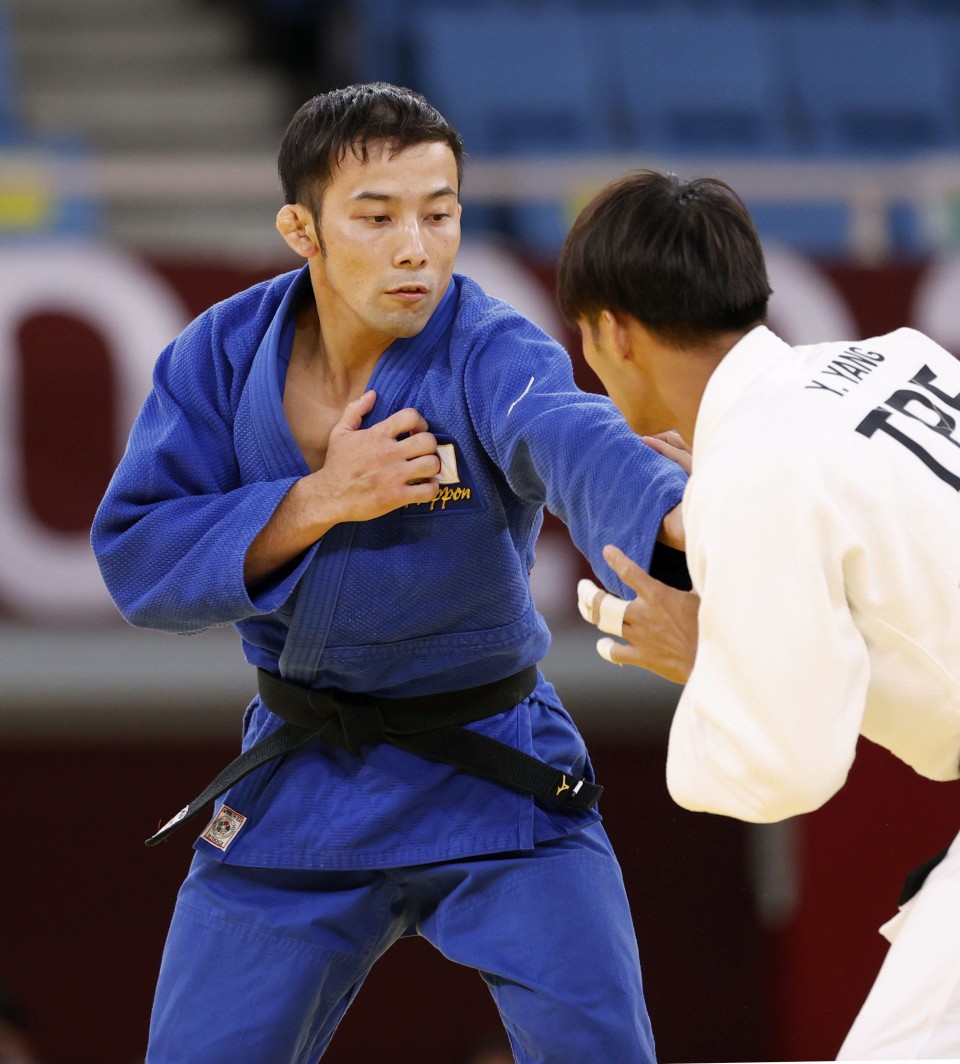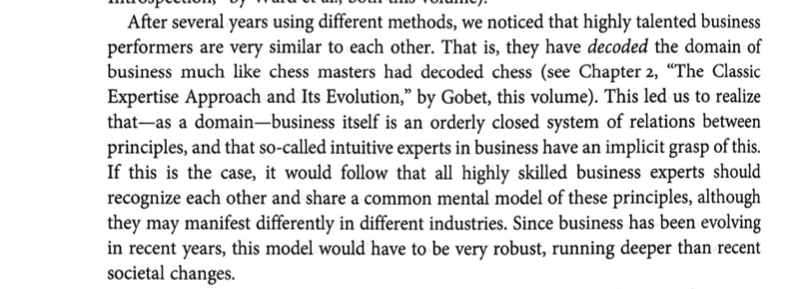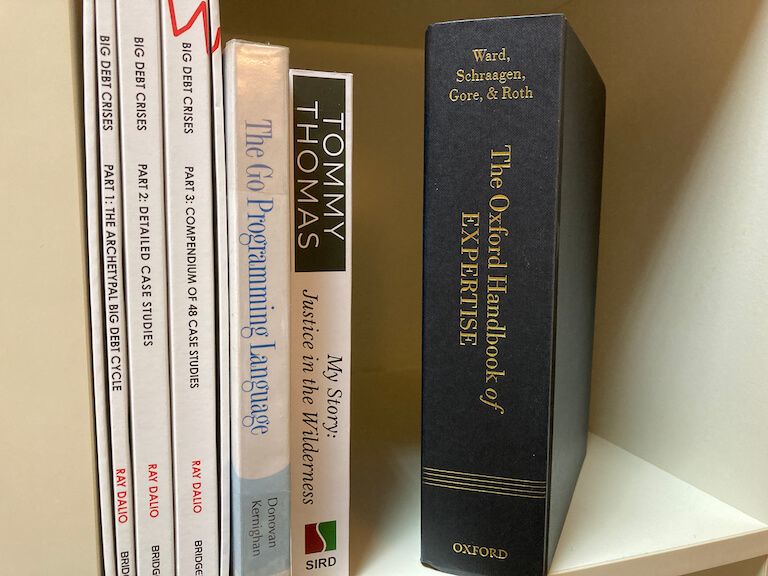
US Military, Naturalistic Decision Making researchers: "in order to accelerate expertise, we need to design our training programs to destroy existing mental models"
Good businesspeople: "how can we distill wisdom from the air?"
Everyone else: "u need 2 do DeLiBeRaTe PrAcTiCe!"
Good businesspeople: "how can we distill wisdom from the air?"
Everyone else: "u need 2 do DeLiBeRaTe PrAcTiCe!"
https://twitter.com/ejames_c/status/1425748877987229696
Clarification on the 'distill wisdom from the air' bit — that's from Robert Kuok's biography, in reference to the way uneducated Chinese businessmen learn. Mostly by reflecting on experiences and observing widely.
There was a meme sometime back on “what is the deliberate practice of your domain?” With this theory of learning, we can say that the question is ill-formed, because DP can only be done in domains with clear pedagogical development, with a coach who has that pedagogy.
Instead, in most real world domains we care about — messy domains like business and investment and careers — the right question to ask is: how do we get better at trial and error?
in other words, what we need is a learning theory for how people do better trial and error!
in other words, what we need is a learning theory for how people do better trial and error!
The glib response to “what is the equivalent of deliberate practice in your field” is “I sensemake (reflect on my experiences) better and more aggressively and more thoroughly than my peers.”
Oh, and: “I actively search for better methods to double check my mental models, because I know the better I get at this game, the better able I become to deceive myself.”
• • •
Missing some Tweet in this thread? You can try to
force a refresh



